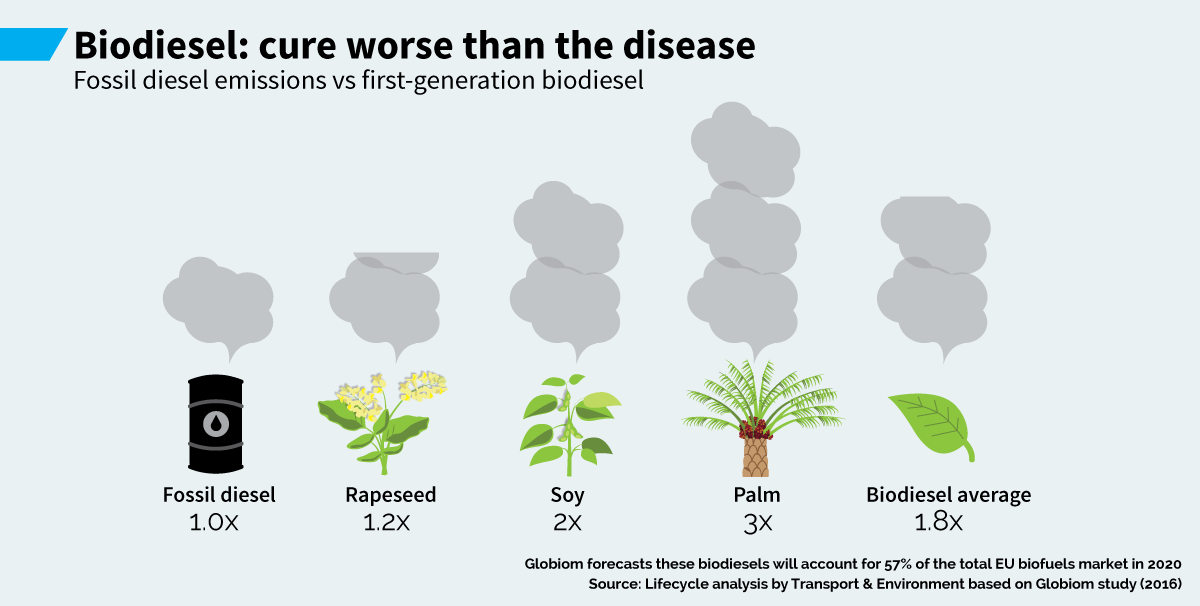
Interested in this kind of news?
Receive them directly in your inbox. Delivered once a week.
Biodiesel made from virgin vegetable oil is the most popular biofuel in the European market with a market share of 80% in 2015. Of all biodiesel, palm oil is the cheapest (1) and has the highest greenhouse gas emissions – three times worse for the climate than fossil diesel. This is because palm expansion drives deforestation and peatland drainage in Southeast Asia, Latin America and Africa. Palm-oil biodiesel accounted for 32% of biodiesel, and 2% of all diesel burned in Europe last year, a fact few European drivers know when filling up their vehicles.
Jori Sihvonen, biofuels officer at Transport & Environment (T&E), said: “Citizens can do their best to avoid palm oil in their food and cosmetics. But the EU biofuels rule force them to burn palm oil in their cars, almost always without their knowledge. With this law, the Commission is failing the environment while deceiving consumers trying to do their best for the planet”.
If the world were to follow Europe’s current thirst for palm oil biodiesel, 4,300,000 hectares of land in the tropics would be needed to quench it. That area is equal to the remaining rainforests on peatlands of Borneo, Sumatra and peninsular Malaysia (2).
The European Commission is about to propose the Renewable Energy Directive (RED), which will determine whether biofuels should keep receiving public support after 2020. According to the leaked draft proposal, the Commission plans to keep supporting land-based biofuels with a volume target of 3.8% of total transport fuels in 2030 – a tiny reduction from the 4.9% biofuels share in transport achieved already in 2014. The leaked biofuel plan contradicts the Commission’s own Strategy for Low Emission Mobility published last July, which promised a ‘phaseout of food-based biofuels’.
Jori Sihvonen concluded: “If the world consumes as much palm oil biodiesel as Europe does, it will be game over for the world’s rainforests. We need to stop this biodiesel madness and the best place to start is where all began: Europe. We therefore urge the Commission to phase out land-based biodiesel by 2025 and all land-based biofuels by 2030.”


